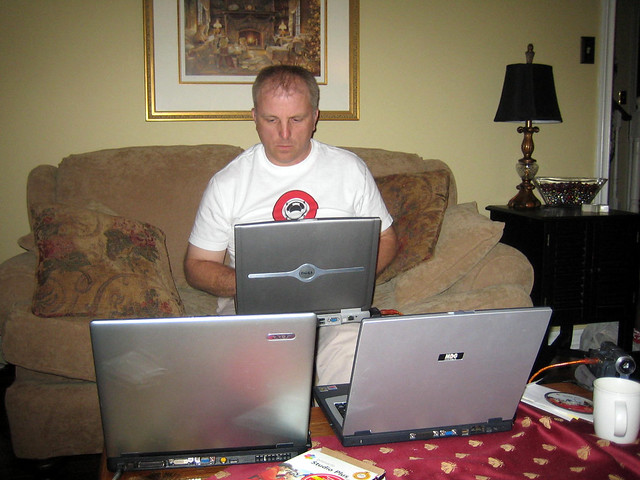I have a Master’s Degree in Educational Technology. For 9 years I had the job title of Digital Learning Consultant. I held another job for a software/media company. I’ve taught post-secondary courses that focus on the role of technology in schools. I’ve spoken at dozens of technology conferences. And yet today I feel more removed from educational technology than ever.
My relationship with technology is like many people I know. With a limited computer background, I became interested in technology because of its increasing ability to connect us at a very human level, I started becoming interested in computer software systems like Ubuntu. Knowing it just opened a lot more doors for me in the industry. Beginning in the late 1990s, I became an early adopter. It was at this point I began to use computers and cameras, specifically in my classroom. This is when I began to see technology as magic. Doing things I was not previously able to do. At that time, interfaces were clunky, hardware was slow and unreliable and so it was only those that saw the magic and potential that preserved and learned. That enthusiasm allowed me opportunities to share and eventually take a leadership role in my district. An M.Ed and high ranking blog, utilization of Web 2.0 tools, conference presentations and invitations all positioned me to be an EdTech advocate and recognized leader. I identified as a “tech guy” even though I freely admitted my lack of “geekery”.
And somewhere in the last 5 years or so, my relationship with edtech has changed. To be fair, It’s a bit of “it’s not you, it’s me” In my early years, I was busy convincing educators and leaders that technology afforded new opportunities and innovations that would shift and transform learning. For the most part, this message and belief is pervasive in most schools and yet actualizing and implementing this remains a challenge. To that end, my interest has shifted to talking about learning more broadly, stripping away the specifics and focusing on what matters most whether or not it includes a specific technology or not. I noticed recently that many of my talks rarely include much of a reference to technology. The other part of the change for me is that much of what constituted technology in my early years has been either adopted or embedded into learning. Using digital media to create and consume, expanding classrooms to connect with experts and other learners, connecting assessment to technology, effectively using mobile devices as well as exploring the growing interest in digital citizenship were all topics and areas I spent time teaching and supporting. Today those topics, while still of interest do not have the same “newness” that we associate when with think of technology.
If we rely on the Alan Kay definition of technology that “Technology is anything that was invented after you were born” we can see that for our students, most of the things I’ve mentioned are not technology. What I currently see as educational technology would be things like:
- Augmented and Virtual Reality
- 3D Printing
- Coding (arguably coding has been around for a long time but has become a newly sought after skill/experience)
- ESports
- BlockChain (data security)
See Horizon Report for similar topics
Some people might add a few more to the list and when I look at what ISTE suggests are “hot topics” in edtech I tend to dismiss things like, professional learning, global learning and digital citizenships given these are not really new but being embraced more and are analog concepts trying to include more digital components.
All this to reflect and acknowledge that those things I think are today’s EdTech issues, are not something that I’m particularly interested in exploring. Not to say they don’t have value but my interest in technology was not because it offered a few students new opportunities but because I believed that the things I was passionate about were in some respects ideas and dispositions there useful for all. I might be wrong about the current edtech trends. Perhaps they will become more inclusive and be things that all students find valuable. I did concede that coding was an important thing to at least explore.
Either way, I’m not sure I identify as an edtech guy any longer. I don’t know if that’s good or bad. What about you?
